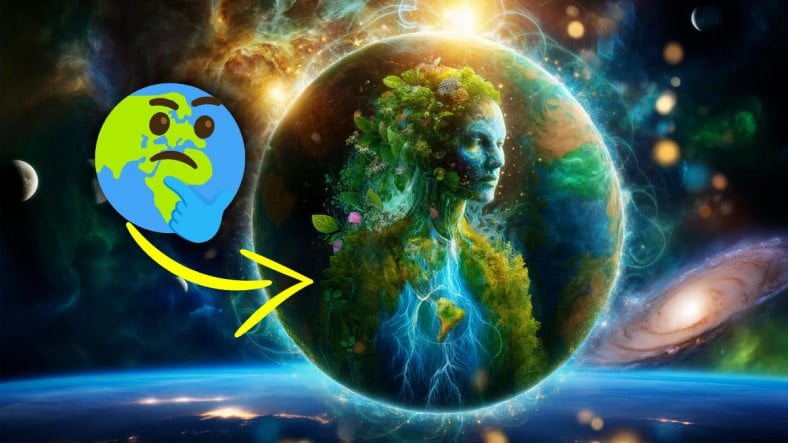Let’s take a closer look at the Gaia Hypothesis, which claims that the Earth is a complex, interconnected set of systems and a living organism.
It’s about our planet; keep it flat until the ox stands on its horns Many theories have been put forward.
One of these theories was proposed by British scientist and environmentalist James Ephraim Lovelock in 1974, named after the Greek mythology. named after the earth goddess “Gaia Hypotezi”.
What is the Gaia Hypothesis?
James Lovelock describes Gaia as follows: “A complex entity that includes the Earth’s biosphere, atmosphere, oceans, and soils; directed towards creating the most suitable physical and chemical environment for life on this planet integrity forming a feedback or cybernetic system.”
According to the hypothesis, the Earth’s biosphere (living organisms), atmosphere (air), hydrosphere (water) and lithosphere (earth) are in constant interaction with each other. working together to preserve the habitability of the planet.
In other words, all organisms and inorganic environments on Earth protect the living conditions on the planet, to form a single complex self-regulating system they are closely integrated; Our planet is like a living organism in itself…
To give an example…
Sulfur compounds produced by marine plankton condense in the atmosphere and contribute to the formation of clouds. It balances the temperature of the Earth.
Forests and vegetation produce oxygen by absorbing carbon dioxide and regulates the climate.
A hypothesis is actually a theory.
“Many different processes tend to operate in the same direction within this self-regulating system and shape all balances.” The hypothesis formulated as is supported by many scientific experiments and provides useful predictions. Gaia Theory It is known as.
There are also criticisms against the theory.
Some scientists argue that the hypothesis is that the Earth behaves as if it had a purpose or conscious intent. a teleological (goal-driven) approach It evaluates as .
Lovelock responded to this claim in 1990 as follows: “Nowhere in our writings do we suggest that planetary self-regulation is purposeful or involves foresight or planning by biota. We do not express.”
The Gaia hypothesis, which claims that the Earth is a complex and interconnected set of systems, is not a theory that has much validity in the scientific community today, but it is It doesn’t show that the hypothesis is wrong. Still, there are aspects that need to be improved and researched.
Our other content that may interest you:
RELATED NEWS
Why Doesn’t Earth Have a Ring Like Other Planets?
RELATED NEWS
Why Are the Colors of All Planets So Different from Each Other?
Source link: https://www.webtekno.com/dunyanin-yasayan-organizma-oldugunu-savunan-hipotez-h154528.html


